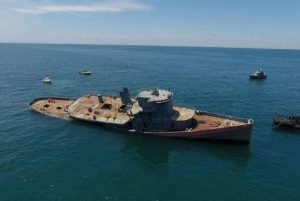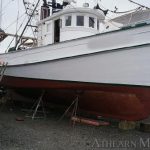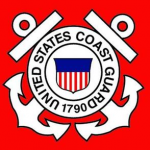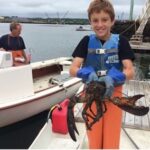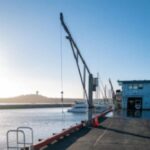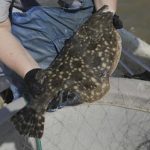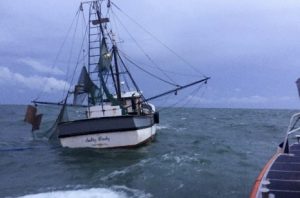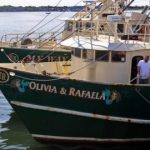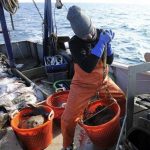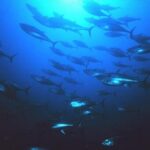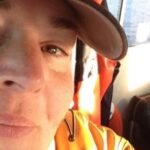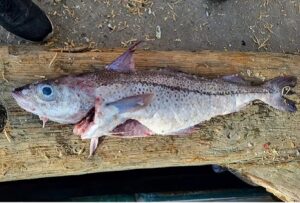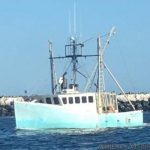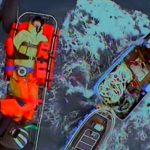Daily Archives: October 22, 2016
Santa Cruz teen brothers start Point Fish Co.
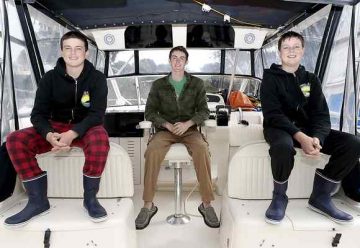 Weekends usually mean sleeping in, but for not the Hofmann brothers of Santa Cruz. The teen entrepreneurs wake up while it’s still dark and head out for a long day of fishing. Their company, the Point Fish Co., has been in the works for years, but only recently came to fruition. The reason for the wait? The oldest brother had to wait until he was turned 16 to pilot a boat legally. The Hofmann brothers, Hayden (now 17), Baylor, 14, and 13-year-old Grady grew up around the water and always loved fishing. About six years ago they were fishing and started wondering how much money they might make if they sold their catch. When Hayden was old enough to captain the boat, the brothers decided to get some advice and researched how to start a fishing business. Read the story here 18:32
Weekends usually mean sleeping in, but for not the Hofmann brothers of Santa Cruz. The teen entrepreneurs wake up while it’s still dark and head out for a long day of fishing. Their company, the Point Fish Co., has been in the works for years, but only recently came to fruition. The reason for the wait? The oldest brother had to wait until he was turned 16 to pilot a boat legally. The Hofmann brothers, Hayden (now 17), Baylor, 14, and 13-year-old Grady grew up around the water and always loved fishing. About six years ago they were fishing and started wondering how much money they might make if they sold their catch. When Hayden was old enough to captain the boat, the brothers decided to get some advice and researched how to start a fishing business. Read the story here 18:32
Alaska dipnetting – Disorderly and unsafe
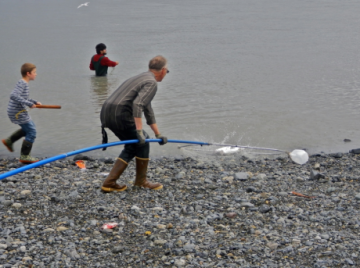 The winter meeting of the Alaska Board of Fisheries is months away but already the weirdness has begun. At a work session in Kenai-Soldotna this week, the board spent some time kicking around the idea of motor restrictions for the Kenai River to make the popular, personal-use dipnet fishery there safer. The suggestion was brought to the board by 72-year-old Soldotna resident George Parks and picked up by the board’s new vice-chair Sue Jeffery, who termed the Kenai a “disorderly, unsafe fishery.” A commercial fisherman from Kodiak, Jeffery appeared unaware everyone was discussing the wrong fishery. There are deadly dipnet fisheries in Alaska, but the Kenai boat fishery is not one of them. The short stretch of the Kenai open to dipnetting from boats during the short July dipnet seasons does get congested. Some boats have collided, and a few have even taken on water until they sank. But no one has ever died. Read the story here 14:38
The winter meeting of the Alaska Board of Fisheries is months away but already the weirdness has begun. At a work session in Kenai-Soldotna this week, the board spent some time kicking around the idea of motor restrictions for the Kenai River to make the popular, personal-use dipnet fishery there safer. The suggestion was brought to the board by 72-year-old Soldotna resident George Parks and picked up by the board’s new vice-chair Sue Jeffery, who termed the Kenai a “disorderly, unsafe fishery.” A commercial fisherman from Kodiak, Jeffery appeared unaware everyone was discussing the wrong fishery. There are deadly dipnet fisheries in Alaska, but the Kenai boat fishery is not one of them. The short stretch of the Kenai open to dipnetting from boats during the short July dipnet seasons does get congested. Some boats have collided, and a few have even taken on water until they sank. But no one has ever died. Read the story here 14:38
Editorial: Auditor General scrutinizes DFO’s fish stock management
 In a province that has the Pacific Salmon as an official emblem, it’s surprising that a report from the federal Auditor General on the management of fish stocks by the Department of Fisheries and Oceans didn’t get more attention. The audit, conducted by the Commissioner of the Environment and Sustainable Development (part of the Auditor General’s office), disclosed a number of deficiencies that should have raised concerns, if not alarm. For example, it found only three of 15 critically depleted stocks had rebuilding plans, increasing the risk that depleted stocks won’t recover. Moreover, of 154 fish stocks, 44 were either missing integrated fish management plans or the plans were out of date. Among other problems the audit identified, third-party observers hired by fishing companies sometimes failed to comply with program requirements but DFO had little recourse other than revoking their designation, which would have deprived it of catch data. Read the op-ed here 13:21
In a province that has the Pacific Salmon as an official emblem, it’s surprising that a report from the federal Auditor General on the management of fish stocks by the Department of Fisheries and Oceans didn’t get more attention. The audit, conducted by the Commissioner of the Environment and Sustainable Development (part of the Auditor General’s office), disclosed a number of deficiencies that should have raised concerns, if not alarm. For example, it found only three of 15 critically depleted stocks had rebuilding plans, increasing the risk that depleted stocks won’t recover. Moreover, of 154 fish stocks, 44 were either missing integrated fish management plans or the plans were out of date. Among other problems the audit identified, third-party observers hired by fishing companies sometimes failed to comply with program requirements but DFO had little recourse other than revoking their designation, which would have deprived it of catch data. Read the op-ed here 13:21
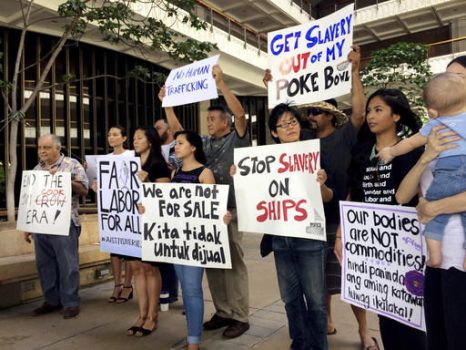
Officials say they cannot enforce Hawaii fishing contracts
Federal officials cannot enforce a contract being proposed by the commercial fishing industry as a solution to concerns about foreign fishing crews in Hawaii, leaving the industry responsible for enforcing its own rules. Federal and state officials met with vessel owners, captains and representatives from the fleet Thursday at a pier in Honolulu. The normally private quarterly meeting was opened to media and lawmakers to discuss conditions uncovered in an Associated Press investigation that found some foreign fishermen had been confined to vessels for years. On Wednesday, Hawaii state Rep. Kaniela Ing held a public meeting at the state Capitol on the issue. Ing and other lawmakers pressed representatives from the fishing industry and government agencies about what can be done to increase oversight and improve conditions in the industry. Read the story here 09:31
Letter: Fisherfolk should get behind new union by Oswan Tucker, Reef’s Harbour
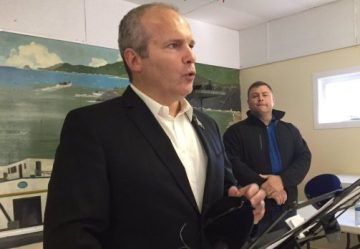 Now is the time to finish what we started last year, which was to get rid of the FFAW. The Fish, Food and Allied Workers union has neglected us, taken advantage of us and turned fisherfolk against one another. It shouldn’t be like that. We can do better than that, and now we will. We have acquired Ryan Cleary to head up our new union, which will be named the Federation of Independent Sea Harvesters of Newfoundland and Labrador (FISH-NL). This new union will look after the best interests of Newfoundland and Labrador fishermen and women — and only them. It will have a constitution drawn up to protect fisher folk from the kind of things we had to put up with from the FFAW. Read the rest here 09:06
Now is the time to finish what we started last year, which was to get rid of the FFAW. The Fish, Food and Allied Workers union has neglected us, taken advantage of us and turned fisherfolk against one another. It shouldn’t be like that. We can do better than that, and now we will. We have acquired Ryan Cleary to head up our new union, which will be named the Federation of Independent Sea Harvesters of Newfoundland and Labrador (FISH-NL). This new union will look after the best interests of Newfoundland and Labrador fishermen and women — and only them. It will have a constitution drawn up to protect fisher folk from the kind of things we had to put up with from the FFAW. Read the rest here 09:06
Scientists Are Closer To Understanding What Makes Ocean’s Toxic Algae Bloom
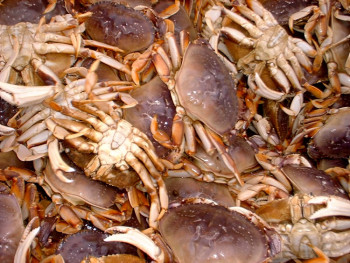 Last winter was the first time the Dungeness crab fishery in Oregon closed temporarily because of toxic algae in the ocean. And even just a week ago, another toxic bloom was happening off the coast. Scientists are just beginning to understand what triggers these conditions. A study this month from Oregon State University and the National Oceanic and Atmospheric Administration provides a rare peak below the waves. The toxin, demoic acid, is sometimes produced by an algae called Pseudo-nitzschia, or PN. PN does better than most algae when ocean temperatures are high and there isn’t much nutrients in the water. When these nutrient-poor conditions are followed by upwelling of rich, cold water from the ocean bottom, the PN are in the perfect position to party. Their numbers explode. Read the story here 08:46
Last winter was the first time the Dungeness crab fishery in Oregon closed temporarily because of toxic algae in the ocean. And even just a week ago, another toxic bloom was happening off the coast. Scientists are just beginning to understand what triggers these conditions. A study this month from Oregon State University and the National Oceanic and Atmospheric Administration provides a rare peak below the waves. The toxin, demoic acid, is sometimes produced by an algae called Pseudo-nitzschia, or PN. PN does better than most algae when ocean temperatures are high and there isn’t much nutrients in the water. When these nutrient-poor conditions are followed by upwelling of rich, cold water from the ocean bottom, the PN are in the perfect position to party. Their numbers explode. Read the story here 08:46
Whalers in crosshairs at International Whaling Commission huddle
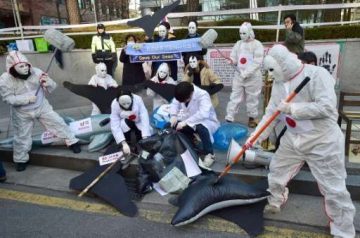 More than 80 nations square off in Slovenia next week over the fate of the world’s remaining whales, facing a multitude of perils from meat hunters and ship strikes to getting snared in fishing gear. The stage is set for heated debate, as the 88 members of the International Whaling Commission (IWC) are deeply divided along pro- and anti-hunting lines. The biggest bones of contention are Japan’s yearly whale hunt in the name of science, which critics insist is for dinner tables instead, and a proposal for a South Atlantic sanctuary to protect the majestic marine mammals. Hunting nations Japan, Norway and Iceland are traditionally pitted against much of the rest of the world at the biennial IWC meetings, which seek to balance issues of national sovereignty, subsistence rights and culture with conservation of Earth’s natural bounty. For environmentalists, it is an issue of cruelty as well. Read the story here 08:19
More than 80 nations square off in Slovenia next week over the fate of the world’s remaining whales, facing a multitude of perils from meat hunters and ship strikes to getting snared in fishing gear. The stage is set for heated debate, as the 88 members of the International Whaling Commission (IWC) are deeply divided along pro- and anti-hunting lines. The biggest bones of contention are Japan’s yearly whale hunt in the name of science, which critics insist is for dinner tables instead, and a proposal for a South Atlantic sanctuary to protect the majestic marine mammals. Hunting nations Japan, Norway and Iceland are traditionally pitted against much of the rest of the world at the biennial IWC meetings, which seek to balance issues of national sovereignty, subsistence rights and culture with conservation of Earth’s natural bounty. For environmentalists, it is an issue of cruelty as well. Read the story here 08:19






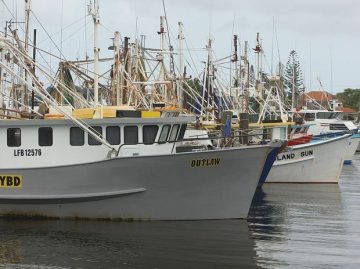 ABOUT 90 fishers who took time off to learn how to stay in the changing industry have been left with no help due to a crashing website. The website, set up to train fishers how to buy and sell fishing rights in an upcoming New South Wales-wide shares auction, went offline between 9am and 1pm on Monday. It was meant to be the website’s first day online. Upper house Labor MP Mick Veitch said the crash was indicative of “continuing errors in the implementation of the commercial fishing restructure”. Primary Industries Minister Niall Blair told parliament fishers were still able to get phone help. He said about 450 fishers were registered for the mock share-auction stage, but most of the industry would not need to take part. The online failure follows a troubled training session branded a shambles by industry figures. Local fishers came away saying they left the session disappointed, angrier, dismayed, with more questions than when they came.
ABOUT 90 fishers who took time off to learn how to stay in the changing industry have been left with no help due to a crashing website. The website, set up to train fishers how to buy and sell fishing rights in an upcoming New South Wales-wide shares auction, went offline between 9am and 1pm on Monday. It was meant to be the website’s first day online. Upper house Labor MP Mick Veitch said the crash was indicative of “continuing errors in the implementation of the commercial fishing restructure”. Primary Industries Minister Niall Blair told parliament fishers were still able to get phone help. He said about 450 fishers were registered for the mock share-auction stage, but most of the industry would not need to take part. The online failure follows a troubled training session branded a shambles by industry figures. Local fishers came away saying they left the session disappointed, angrier, dismayed, with more questions than when they came. 


























